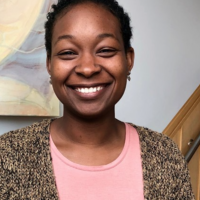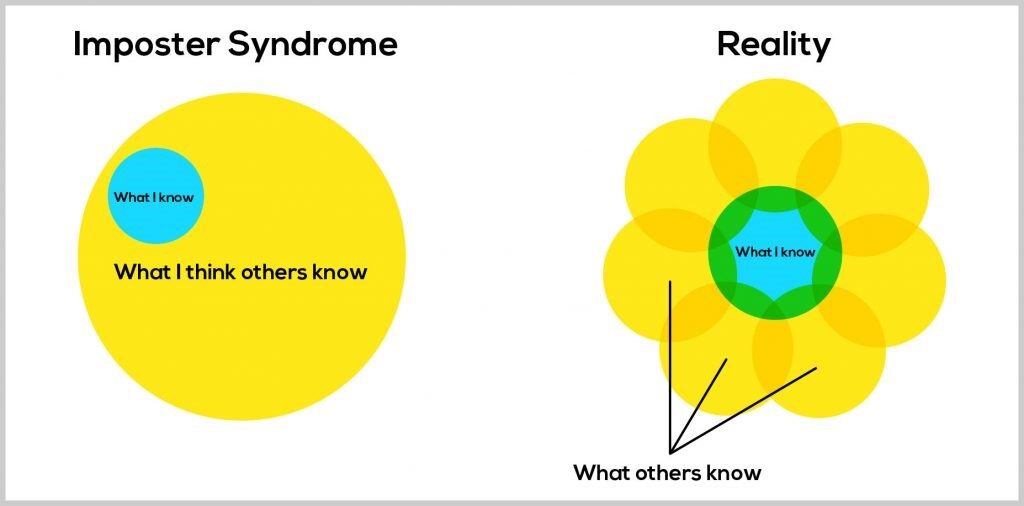Working in Environmental Philanthropy Helped Cure My Imposter Syndrome
June 20, 2019
I first experienced Imposter Syndrome as a new graduate student. I am sure I am not alone in this sentiment. I started undergraduate as an international relations major, then transferred schools where I tried on Public Health, Education, and Anthropology before choosing to major in Behavioral Biology. I didn’t know what Ecology entailed until I studied abroad in Ecuador at the end of my junior year. I fell in love with my course and fieldwork, envisioning a successful career in ecology.
With only two semesters until graduation, I rushed to make up for (what I felt was) lost time, taking as many classes with “ecology” in the title as possible. I applied to internships, research positions, and Master’s programs hoping to fill in gaps in my knowledge and skills. Once accepted into a Master’s in Ecology and Evolutionary Biology, I was elated to continue my journey towards becoming an ecologist, unaware Imposter Syndrome had also packed for the ride.
I already felt like a latecomer to environmentalism because of my meandering undergraduate track. Upon starting graduate school, I felt I’d never be able to “catch up” to the knowledge and experience I perceived my new peers to have. Furthermore, my past experiences did not feel valuable to my new endeavors in ecology and later, environmental justice. An active student, I studied, taught classes, conducted thesis research, co-authored papers, participated in department committees and led student groups—and I still felt I was nowhere near the mark of a “real” scientist capable of making meaningful contributions to ecology or environmental justice.
Upon graduation, I was accepted into the Environmental Fellows Program and began working with the Erb Family Foundation’s Great Lakes Program investigating the role of voluntary agricultural stewardship in reducing nonpoint source nutrient pollution. Now I was facing “Environmental Philanthropy,” which I had never heard of, and the non-profit sector, in which I had no experience. Sounds like a situation rife with Imposter Syndrome, right? Well, within a few weeks of the fellowship, residual feelings of lagging behind and never contributing to the environmental sector faded, and I actually felt like I had arrived.
Working in environmental philanthropy provided me with a space to feel like I was holding my own. It was clear that even as a fellow, what I brought to the table was valued and had real-world outcomes that I could see in real time. I was able to test my Master’s training outside of a vacuum. I applied my experience in coastal ecosystem ecology to evaluating a Letter of Inquiry for research on phosphorus-capture in wetlands. I discussed the role of environmental justice in Michigan’s current and future Natural Resource planning with DEQ officials. My colleagues saw my research as a valuable asset to their strategic planning.
I found that skills developed in earlier non-environmental experiences also allowed me to successfully contribute to Erb’s mission. While in academia, I felt I had to master the minutia of a subject in order to be “legitimate” or make a contribution. Surely, subject matter knowledge is critical, but it isn’t everything. For me, knowing how to facilitate discussions, conduct interviews, interpret information, work across difference, and follow up and follow through also mattered. My experiences in the humanities, behavioral science, sociology, entrepreneurship, education, and DEI initiatives, helped hone these skills, which were invaluable to my fellowship experience. I felt my “scattered” resume became a strength, not a drawback. I felt multi-dimensional and relatable to colleagues and organizational partners, with a capacity to develop creative and useful connections between people and programs.
To be clear: You don’t need to have experience in every field and striving for this would likely amplify Imposter Syndrome. Likewise, Environmental Philanthropy is not a cure-all for Imposter Syndrome (though I recommend it to those looking for “non-traditional” environmental work). However, taking stock of your skills, owning what you know, and seeking opportunities to creatively apply them can help quell that beast and possibly make meaningful environmental change. I was lucky to have a fellowship that help facilitate this process initially, but I am actively checking my Imposter Syndrome moving forward. Reframing my narrative as one wherein I can make a significant contribution to the environmental sector is work. But, it is also a fruitful personal, political, and professional act. So, if you ever think you lack direction or will never be “good enough”, think again. Recognize your multitudes, identify your strengths, and dare to think of yourself outside the box.
Works Cited:
- Cox, Elizabeth. “What Is Imposter Syndrome and How Can You Combat It?” YouTube, TED-Ed, 28 Aug. 2018, youtu.be/ZQUxL4Jm1Lo.
- “Who We Are.” Fred A. and Barbara M. Erb Family Foundation, 2017, www.erbff.org/.
About Teal Harrison

